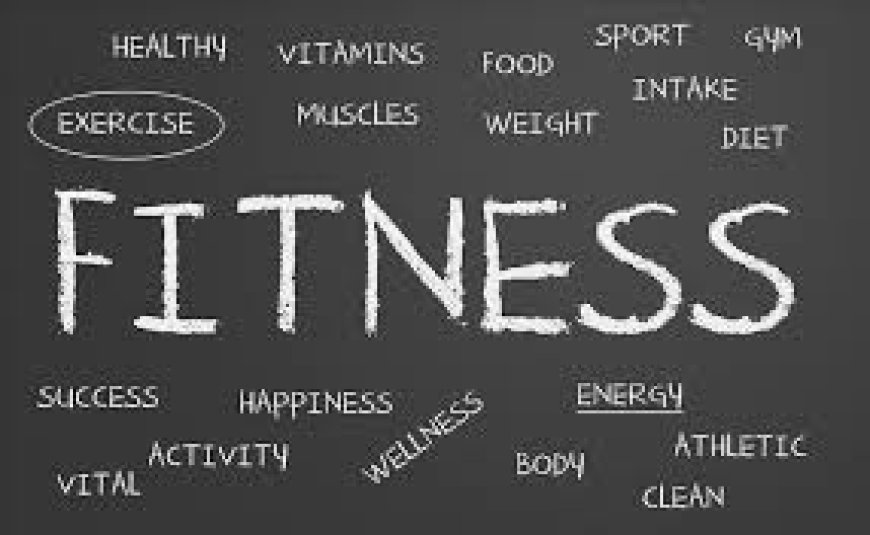What is Fitness
Discover what fitness truly means, exploring its health and skill components for a balanced and active lifestyle. What is fitness?

What is Fitness? Understanding Physical Fitness
Fitness is a term that encompasses various aspects of health and well-being, but at its core, it refers to the body's ability to perform daily activities effectively and with ease. Physical fitness specifically highlights the efficiency of your body's systems working in harmony, enabling you to lead a healthy lifestyle and engage in everyday tasks without unnecessary fatigue. A physically fit individual can manage schoolwork, household duties, and still have ample energy for leisure activities and sports. This capability extends to responding adequately to both routine and emergency situations, such as running for help or assisting someone in distress.
The Components of Physical Fitness
Physical fitness consists of 11 components divided into two main categories: health-related fitness and skill-related fitness. Understanding these components is essential for anyone looking to enhance their overall well-being and performance in various physical activities.
Health-Related Physical Fitness
Health-related fitness includes six crucial components that contribute to overall wellness and longevity. These are:
-
Body Composition: Refers to the proportion of fat and non-fat mass in the body. Maintaining a healthy body composition can reduce the risk of chronic diseases.
-
Cardiorespiratory Endurance: This is the ability of your heart and lungs to supply oxygen during sustained physical activity. It is essential for activities like running, swimming, and cycling.
-
Flexibility: The range of motion in your joints and muscles. Good flexibility can enhance performance in physical activities and reduce the risk of injury.
-
Muscular Endurance: This is the ability of a muscle or group of muscles to sustain repeated contractions over time. It is vital for sports and daily activities that require stamina.
-
Strength: Refers to the maximum amount of force a muscle can produce. Strength is important for overall fitness and supports other physical activities.
-
Power: This is a newer addition to health-related fitness, previously categorized under skill-related fitness. It involves both strength and speed, and recent studies link it to better health outcomes, such as improved bone health and reduced chronic disease risk.
These components collectively help you perform daily tasks and engage in physical activities effectively, contributing to your overall health.
Skill-Related Physical Fitness
In contrast, skill-related fitness comprises five components that enhance performance in specific sports and activities requiring refined motor skills:
-
Agility: The ability to change direction quickly and effectively. This is crucial in sports like soccer and basketball.
-
Balance: Maintaining stability while stationary or moving. Good balance can prevent injuries and improve performance in various activities.
-
Coordination: The ability to use different parts of the body together smoothly and efficiently. This is essential for tasks like dancing or playing instruments.
-
Reaction Time: The speed at which you respond to a stimulus. This is critical in sports like boxing or track events.
-
Speed: The ability to move quickly across the ground or to move limbs rapidly. This component is vital for success in track and field events.
The Importance of Balance in Fitness
It's important to recognize that individuals may excel in some components of physical fitness while struggling in others. For example, a runner may demonstrate exceptional cardiorespiratory endurance but lack strength or flexibility. This disparity highlights the necessity for a balanced approach to fitness, focusing on all areas for overall health.
A well-rounded fitness routine that incorporates both health-related and skill-related components can lead to improved wellness, increased energy, and a reduced risk of health issues such as heart disease, obesity, and diabetes. Regular physical activity—whether it’s structured exercise, sports, or daily activities—can significantly enhance your health-related fitness levels.
Conclusion
In conclusion, what is fitness? It is a comprehensive term that encapsulates various dimensions of physical capability, with physical fitness being a critical element of overall well-being. Emphasizing both health-related and skill-related components enables individuals to achieve not only athletic prowess but also enhanced daily functioning and a healthier lifestyle. Regardless of your current fitness level, engaging in regular physical activity can lead to significant improvements in your health and overall quality of life. Embrace the journey toward fitness, and discover how good health can positively impact every aspect of your life.







